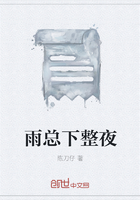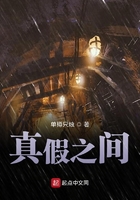In what relation do the Communists stand to the proletarians as a whole?
The Communists do not form a separate party opposed to other working-class parties.
They have no interests separate and apart from those of the proletariat as a whole.
They do not set up any sectarian principles of their own, by which to shape and mould the proletarian movement.
The Communists are distinguished from the other working-class parties is only: (1) In the national struggles of the proletarians of the different countries, they point out and bring to the front the common interests of entire proletariat, independently of nationality. (2) In the various stages of development which the struggle of the working class against the bourgeoisie has to pass through, they always and everywhere represent the interests of the movement as a whole.
The Communists, therefore, are on the one hand, practically, the most advanced and resolute section of the working-class parties of every country, that section which pushes forward all others; on the other hand, theoretically, they have over the great mass of the proletariat the advantage of clearly understanding the line of march, the conditions, and the ultimate general results of the proletarian movement.
The immediate aim of the Communist is the same as that of all the other proletarian parties: formation of the proletariat into a class, overthrow of the bourgeois supremacy, conquest of political power by the proletariat.
The theoretical conclusions of the Communists are in no way based on ideas or principles that have been invented, or discovered, by this or that would-be universal reformer. They merely express, in general terms, actual relations springing from an existing class struggle, from a historical movement going on under our very eyes. The abolition of existing property relations is not at all a distinctive feature of Communism.
All property relations in the past have continually been subject to historical change consequent upon the change in historical conditions.
The French Revolution, for example, abolished feudal property in favour of bourgeois property.
The distinguishing feature of Communism is not the abolition of property generally, but the abolition of bourgeois property. But modern bourgeois private property is the final and most complete expression of the system of producing and appropriating products, that is based on class antagonisms, on the exploitation of the many by the few.
In this sense, the theory of the Communists may be summed up in the single sentence: Abolition of private property.
We Communists have been reproached with the desire of abolishing the right of personally acquiring property as the fruit of a man's own labour, which property is alleged to be the groundwork of all personal *******, activity and independence.
Hard-won, self-acquired, self-earned property! Do you mean the property of the petty artisan and of the small peasant, a form of property that preceded the bourgeois form? There is no need to abolish that; the development of industry has to a great extent already destroyed it, and is still destroying it daily.
Or do you mean modern bourgeois private property?
But does wage-labour create any property for the labourer? Not a bit. It creates capital, i.e., that kind of property which exploits wage-labour, and which cannot increase except upon condition of begetting a new supply of wage-labour for fresh exploitation. Property, in its present form, is based on the antagonism of capital and wage-labour. Let us examine both sides of this antagonism.
To be a capitalist, is to have not only a purely personal, but a social status in production. Capital is a collective product, and only by the united action of many members, nay, in the last resort, only by the united action of all members of society, can it be set in motion.
Capital is, therefore, not a personal, it is a social power.
When, therefore, capital is converted into common property, into the property of all members of society, personal property is not thereby transformed into social property. It is only the social character of the property that is changed. It loses its class-character.
Let us now take wage-labour.
The average price of wage-labour is the minimum wage, i.e., that quantum of the means of subsistence, which is absolutely requisite in bare existence as a labourer. What, therefore, the wage-labourer appropriates by means of his labour, merely suffices to prolong and reproduce a bare existence. We by no means intend to abolish this personal appropriation of the products of labour, an appropriation that is made for the maintenance and reproduction of human life, and that leaves no surplus wherewith to command the labour of others. All that we want to do away with, is the miserable character of this appropriation, under which the labourer lives merely to increase capital, and is allowed to live only in so far as the interest of the ruling class requires it.
In bourgeois society, living labour is but a means to increase accumulated labour. In Communist society, accumulated labour is but a means to widen, to enrich, to promote the existence of the labourer.
In bourgeois society, therefore, the past dominates the present; in Communist society, the present dominates the past. In bourgeois society capital is independent and has individuality, while the living person is dependent and has no individuality.
And the abolition of this state of things is called by the bourgeois, abolition of individuality and *******! And rightly so. The abolition of bourgeois individuality, bourgeois independence, and bourgeois ******* is undoubtedly aimed at.
By ******* is meant, under the present bourgeois conditions of production, free trade, free selling and buying.














